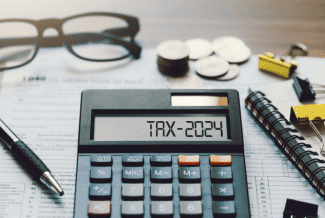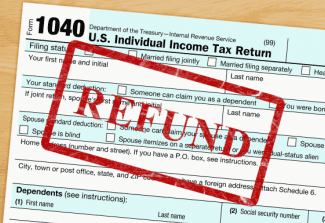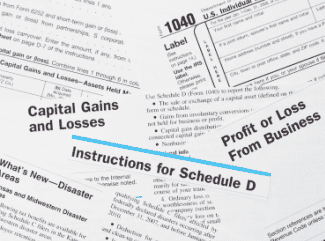6 Reasons Small Business Owners Should Meet With Their CPA Before Year-End
by Thomas F. Scanlon, CPA, CFP®

1) Method of Accounting
Smaller business can usually file their tax returns on the cash basis of accounting. The taxable income is based on the revenue received less the deductible expenses. Larger companies must prepare their tax return using the accrual basis of accounting. The accrual basis matches the revenue earned with the expenses incurred. Accounts receivable, inventory, prepaid expenses, accounts payable and other accrued liabilities are used in the accrual basis of accounting.
Cash basis taxpayers have more flexibility with regards to their expenses at year-end.
2) Choice of Entity
Business Owners have several choices as to how they want to form their entity. An unincorporated business could be a sole proprietorship, partnership or limited liability company.
A ˜C (or regular) corporation is a separate legal and taxable entity. Corporations that make a Subchapter S Election are a hybrid. Like a C Corporation, they are a separate legal entity. However, they are not a separate taxable entity. The profits or losses of a Subchapter S corporation flow through to the stockholders.
3) Accelerated Depreciation Deductions
Businesses that buy capital or fixed assets must depreciate these over the life determined by the IRS. Fixed assets include real estate, machinery & equipment and vehicles. There is an election however that allows for the immediate write off of fixed asset purchases. This is called Code Section 179 and it allows for the immediate write off of up to $139,000 of deductions provided the total fixed asset purchases dont exceed $560,000 and there is income to offset the deductions in 2012. The Code Section 179 Deduction does not apply to real estate and is significantly reduced for vehicles.
4) Adopt a Retirement Plan
To adopt a Retirement Plan the business must complete all of the necessary paperwork to open the plan. Many small businesses have adopted a 401(k) plan. Other possible retirement plans might include a Simplified Employee Pension (˜SEP), Profit-Sharing Plan or a SIMPLE Plan. The SEP is the only plan that can be adopted in 2013 and be effective for 2012.
5) Calculate Year-End Bonuses
Bonuses paid to owners must be paid in 2012 to be deductible in 2012. For businesses on the accrual method, they can accrue bonuses to non-owners provided they are paid within 75 days after the year-end.
6) Pay or Revise Estimated Taxes and Income Tax Withholdings
Failure to have paid in enough income tax through withholdings and estimated taxes may result in an underpayment penalty. Taxpayers should carefully review their withholding and estimated taxes to avoid this penalty.
ACTION ITEM: Here are 6 Reasons Small Business Owners Should Meet With Their CPA now to assist with year-end tax planning.
Thomas F. Scanlon, CPA, CFP® is with Borgida & Company, P.C., Certified Public Accountants in Manchester, Connecticut, celebrating 44 years of tax, advisory and accounting services. Please call (860) 646-2465 or email [email protected] if you would like more information.
See 7 Easy Ways to Decrease Your Income Tax and Keep More Money.
With AAOA, landlords have resources at their fingertips. Check out our Landlord Forms page.
American Apartment Owners Association offers discounts on products and services for landlords related to your rental housing investment, including rental forms, tenant debt collection, tenant background checks, insurance and financing. Find out more at www.joinaaoa.org.















 Accessibility
Accessibility